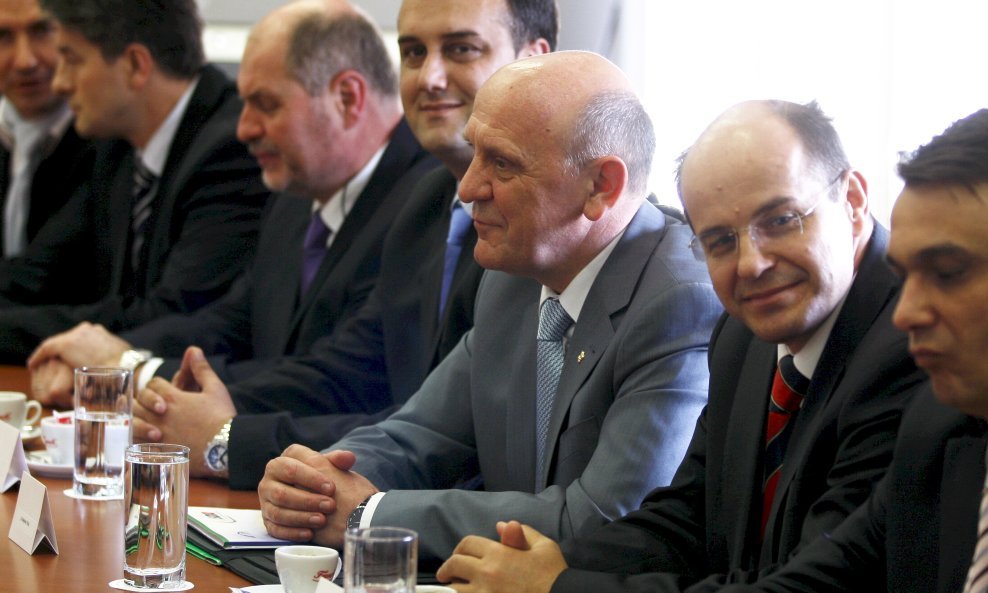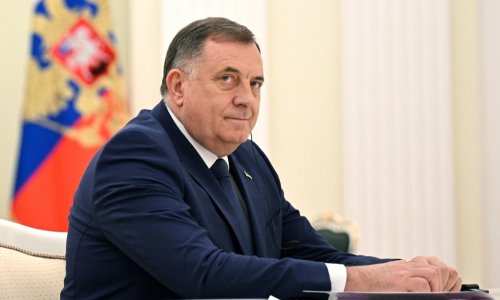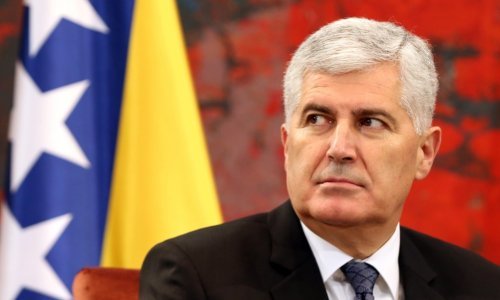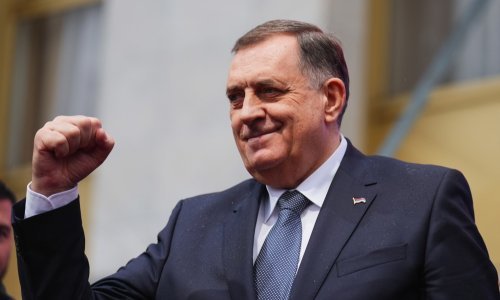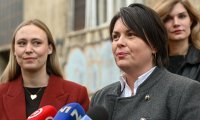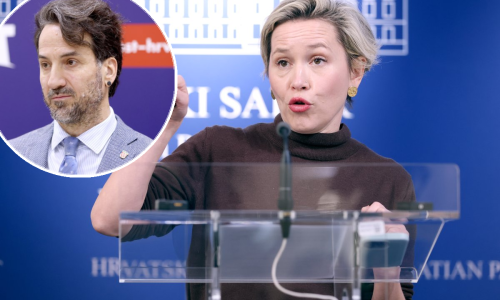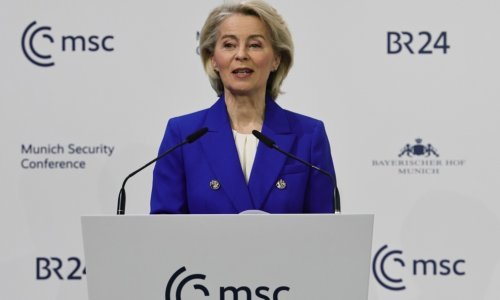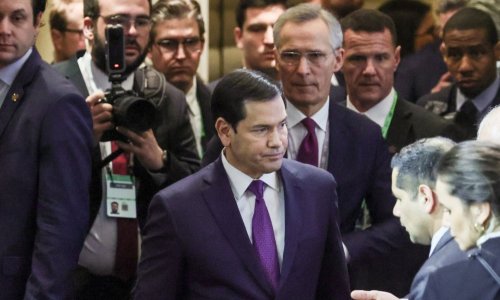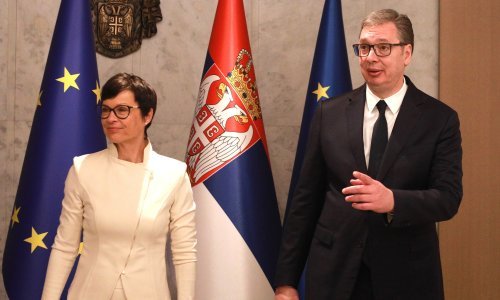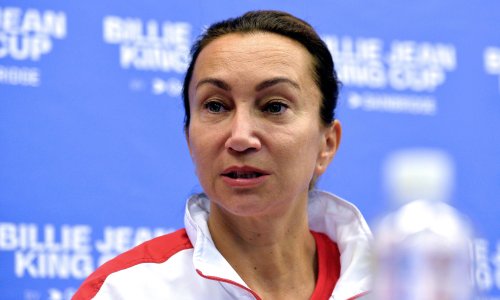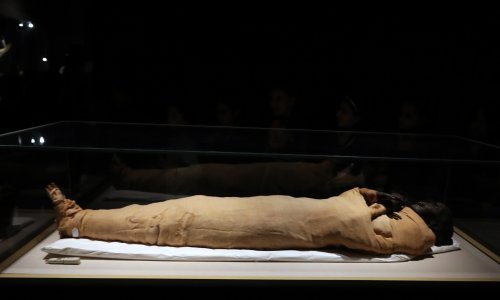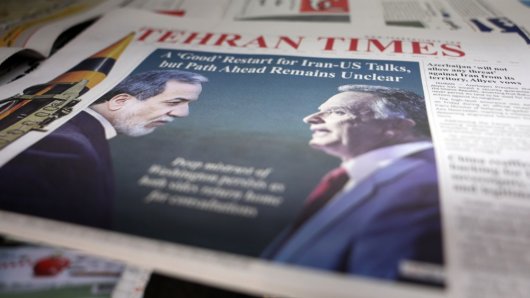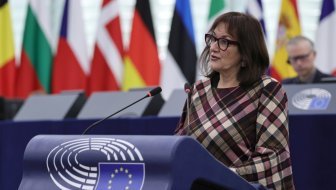Top officials of the Party of Democratic Action (SDA) were the first to call for negotiations on Monday on the establishment of a new coalition in Bosnia and Herzegovina, based on the results of the general election held on Sunday.
"We are prepared to assume our share of responsibility because without the SDA it will be difficult or even impossible to form a government," SDA president Sulejman Tihic told reporters in Sarajevo. He stressed it was necessary to form a government as soon as possible, for the sake of the general situation in the country.
Tihic declined to says whom he considered a desirable partner, stressing however that according to the available election results, the SDA was the second strongest party in the Federation of Bosnia and Herzegovina.
According to preliminary election results, released by the Central Election Committee (SIP), the strongest party in the Federation of Bosnia and Herzegovina, possibly in the entire Bosnia and Herzegovina, is the Social Democratic Party (SDP). Its candidate Zeljko Komsic won the race for the Croat member of the Bosnian collective Presidency, winning nearly twice as many votes than both of his main opponents from the Croatian Democratic Union (HDZ BiH) and the HDZ 1990 - Borjana Kristo and Martin Raguz.
The new Bosniak member of the rotating presidency is Bakir Izetbegovic of the SDA. Izetbegovic said on Monday he would work on the improvement of the functioning of the country's presidency. "We must repair the country's reputation and create a better atmosphere," Izetbegovic said.
Asked if he was prepared to support the Croat candidate for the future chairman of the Bosnian Council fo Ministers, Izetbegovic told Hina it was too early to say. "The parties in power will decide that," Izetbegovic said.
The HDZ BiH, which won the most votes of Bosnian Croat voters and which will most definitely be part of the ruling coalition, has already indicated that the candidate for the new prime minister would be HDZ BiH president Dragan Covic.
The SDP, however, insisted that the new prime minister must come from the ranks of the strongest party.
The re-elected Serb member of the collective presidency, Nebojsa Radmanovic, will most probably back the Croat candidate, while Komsic would support the candidate proposed by the SDP, so the key vote would be that of Izetbegovic.
The future ruling coalition will most definitely include Milorad Dodik's Alliance of Independent Social Democrats (SNSD). The preliminary results show that the SNSD was the strongest party in the Bosnian Serb entity.
The European parliament's rapporteur for Bosnia and Herzegovina, Doris Pack, said on Monday that a good turnout at Sunday's general election meant that citizens of Bosnia and Herzegovina want a functioning state administration and responsible politicians. She underlined that Izetbegovic was a person prepared for dialogue with others.
Peace Implementation Council Ambassadors today congratulated the citizens of Bosnia and Herzegovina and the Central Election Commission for the successful conduct of the general elections.
The Peace Implementation Council Ambassadors express the hope that the newly elected officials as well as the political parties, will embark purposefully on constructive dialogue, which will lead to the timely formation of new governments and subsequently to reform progress that will promote the country"s European path.
The head of the OSCE mission of observers, Roberto Battelli, and the head of the delegation of the Council of Europe Parliamentary Assembly, Tiny Kox, said in Sarajevo today that the elections overall were successful.
The Central Election Committee confirmed that of the total number of ballots for Serb member of the presidency, 58,000 or 9.4 percent were irregular, while the number of irregular ballots cast for the Bosniak and Croat members amounted to 70,000 or 6.88 percent.



